
 Inno Medicine
Inno Medicine  Views
Views
On December 21, the 2nd Active Targeting Liposomal (ATL) Delivery Technology Innovation Conference, organized by Beijing Inno Medicine Co., Ltd. (Inno Medicine) and guided by the Zhongguancun Science City Management Committee and Capital Science and Technology Development Group Co., Ltd, was successfully held in Haidian District, Beijing.

The conference gathered an exceptional lineup of participants, including representatives from Beijing Municipal Science and Technology Commission, Haidian District Government, leading enterprises, pioneering startups, R&D institutions, medical organizations, associations, and investors. Together, they delved into the latest trends in drug delivery technology, showcased cutting-edge scientific research achievements, and shared insights on drug development and clinical trials.
PART 1: Guest Speech
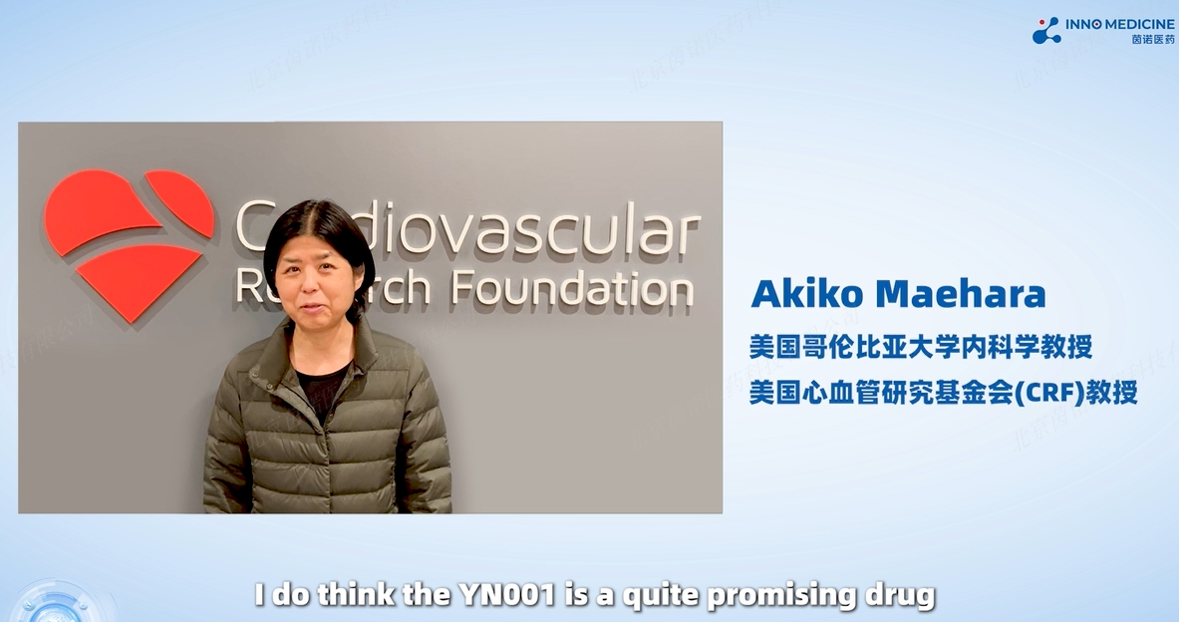
Akiko Maehara, Professor of Medicine at Columbia University and a faculty member of the Cardiovascular Research Foundation (CRF), sent her congratulations via a video speech. As the central imaging review specialist for YN001, she emphasized the critical unmet clinical needs for atherosclerotic diseases. Based on the current observation, Prof. Maehara highlighted the remarkable potential of YN001 to transform care and bring hope to patients. She expected Inno Medicine to successfully advance the clinical study.
PART 2: Keynote Speeches
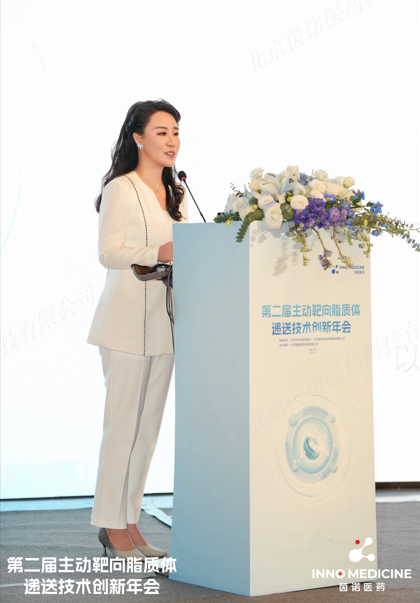
Dr. Ma Qian, Chairman and CEO of Inno Medicine, presented a report titled R&D Progress of YN001—Active Targeting Liposomal (ATL) Delivery Technology. She introduced YN001, which utilizes targeting delivery technology to precisely act on atherosclerotic plaques, achieving significant plaque volume reduction, inflammation alleviation , and plaque stabilization. YN001 has advanced to phase Ib/IIa trials, with preliminary clinical data demonstrating its unique efficacy in plaque regression and atherosclerosis prevention. To meet market demands, Inno Medicine has built the world’s largest liposomal drug production line, with a single batch capacity of 600 L, designed to support critical clinical production and early commercialization.
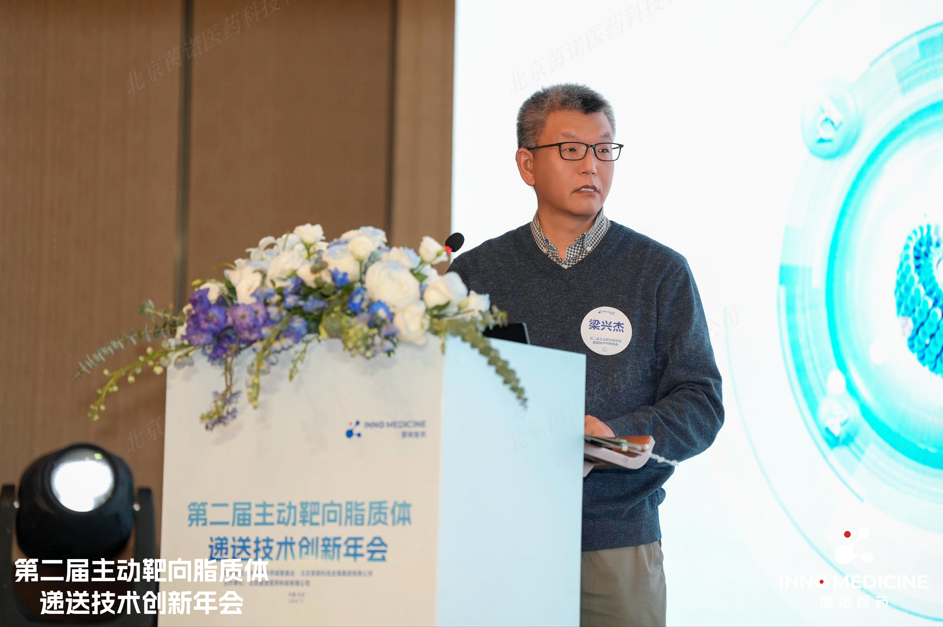
Professor Liang Xingjie, a researcher at the National Center for Nanoscience and Technology, head of the Laboratory of Controllable Nanopharmaceuticals, a member of Academia Europaea, and a recipient of the National Science Fund for Distinguished Young Scholars, reported on Technological Development and Translational Application of Nanomedicine. He shared the latest breakthroughs in nanopharmaceutical research, showcasing how nano-drug technology enhances drug activity, efficacy, and safety. Professor Liang also highlighted its advantages in tackling infectious diseases and malignant tumors, driving transformation in disease diagnosis and clinical treatment.
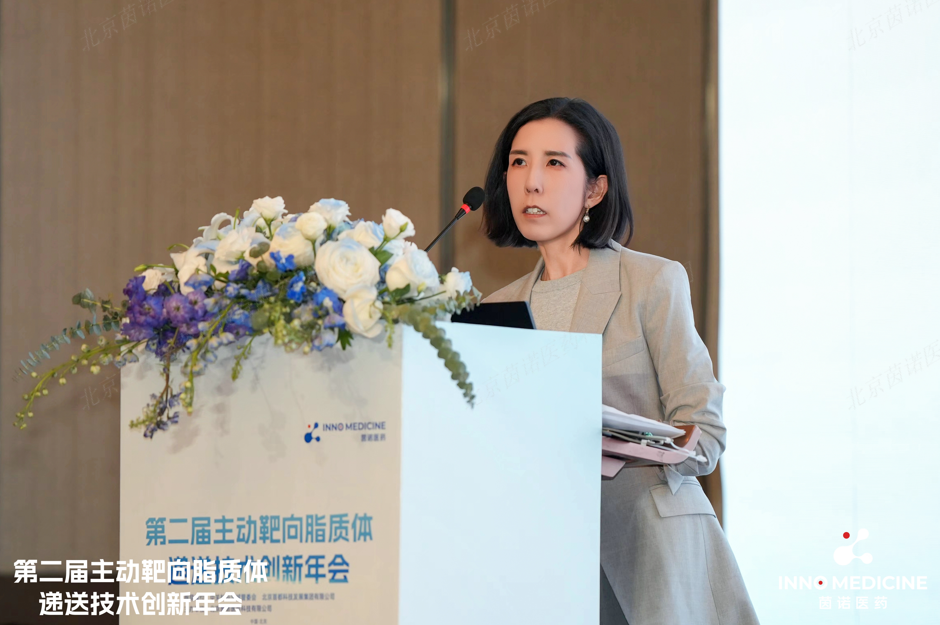
Tiffany Ko, a senior expert, delivered a report titled International Strategies and Pathways for Biotech Companies. She analyzed at length trends in overseas transactions among Chinese biotech firms, highlighting the crucial role of technological innovation in driving globalization. Companies with cutting-edge platform technologies hold a distinct advantage in licensing deals (License-out). Ko also expected the global prospects for ATL as a unique and innovative technology.
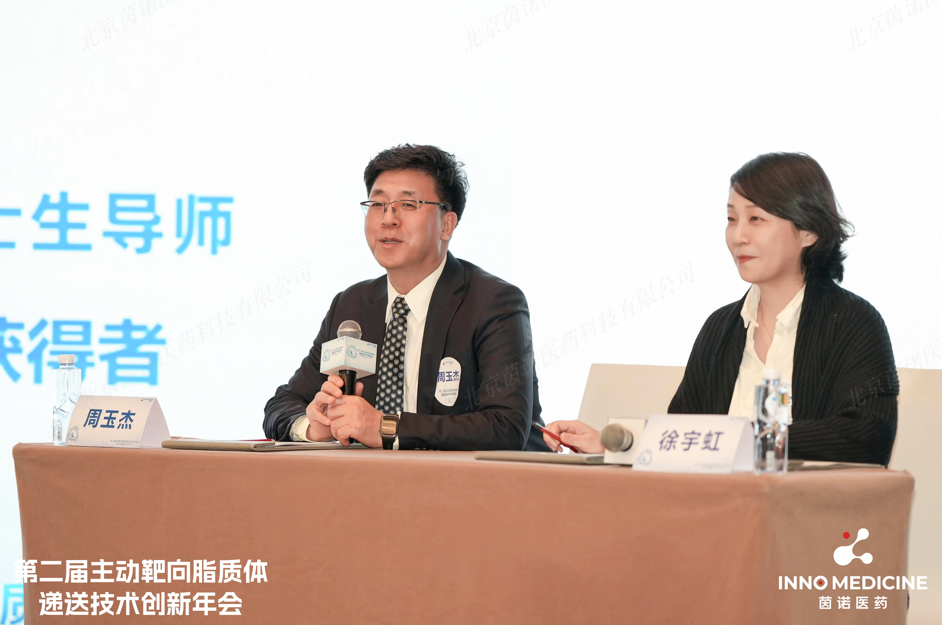
Professor Zhou Yujie, Executive Vice President of Beijing Anzhen Hospital of Capital Medical University, and Professor Xu Yuhong co-chaired the academic session, providing insightful comments on each presentation.
PART 3: Panel Discussions
Two panel discussions focused on platform technologies and clinical development, bringing together experts and scholars to explore critical issues in drug delivery technology and its clinical translation. These discussions offered valuable insights and strategic direction for the future of innovative drug development.
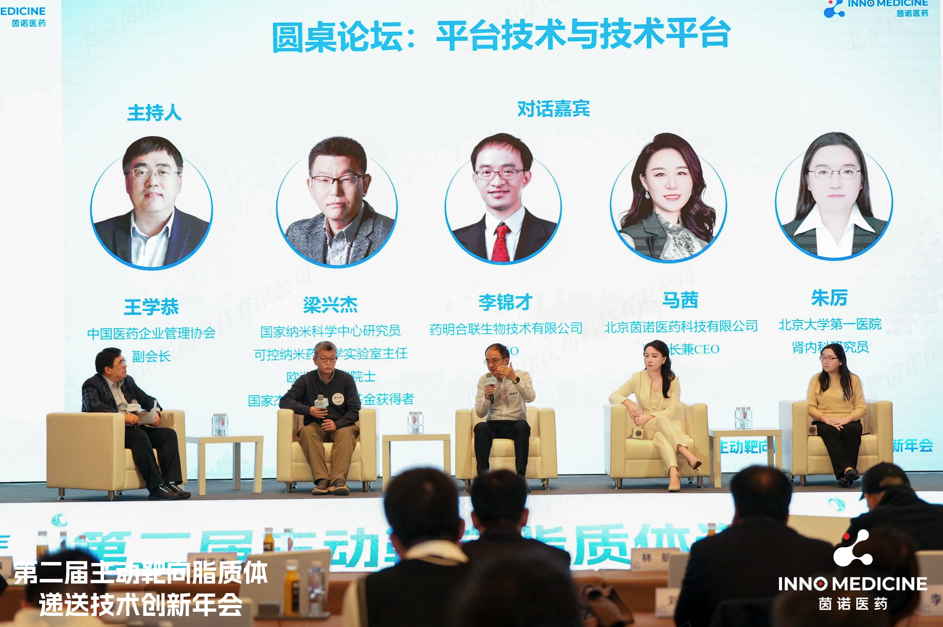
Panel One: Platform Technologies and Technology Platforms was moderated by Wang Xuegong, Vice President of the China Pharmaceutical Enterprises Association. Panelists included Professor Liang Xingjie from the National Center for Nanoscience and Technology; Dr. Li Jincai, CEO of WuXi XDC; Dr. Ma Qian, Chairman and CEO of Inno Medicine; and Dr. Zhu Li, a researcher from the Nephrology Department at Peking University First Hospital. Professor Liang showcased the National Center for Nanoscience and Technology’s cutting-edge platform technologies, including small animal imaging, and stressed the significance of complementary collaboration with enterprises to advance translational applications through basic research. Dr. Li shared WuXi XDC’s successful experience in establishing its ADC technology platform, underscoring its leadership in the bioconjugate drug industry. This success is built on years of expertise and precise understanding of innovation trends, empowering clients and gaining a competitive edge in the market. He noted that ATL delivery technology shares similarities with ADC in terms of precision, offering the potential to expand the therapeutic window, reduce side effects, and enhance treatment efficiency to address clinical needs. Dr. Li emphasized the parallels between “everything can be conjugated” and “everything can be delivered,” expecting strongly the ATL platform’s development potential. Dr. Ma elaborated on Inno Medicine’s strategic transition from independent R&D to a technology service platform. By building the ATL delivery platform and fostering partnerships, Inno Medicine aims to advance the translation of scientific discoveries into clinical breakthroughs. Dr. Zhu shared her experience of collaborating with technology platforms after identifying targets in kidney disease research and highlighted the support provided by Inno Medicine’s platform. She also pointed out the challenges clinicians encounter in early-stage innovations due to insufficient involvement from pharmaceutical companies, hoping for bridging mechanisms to address these gaps.
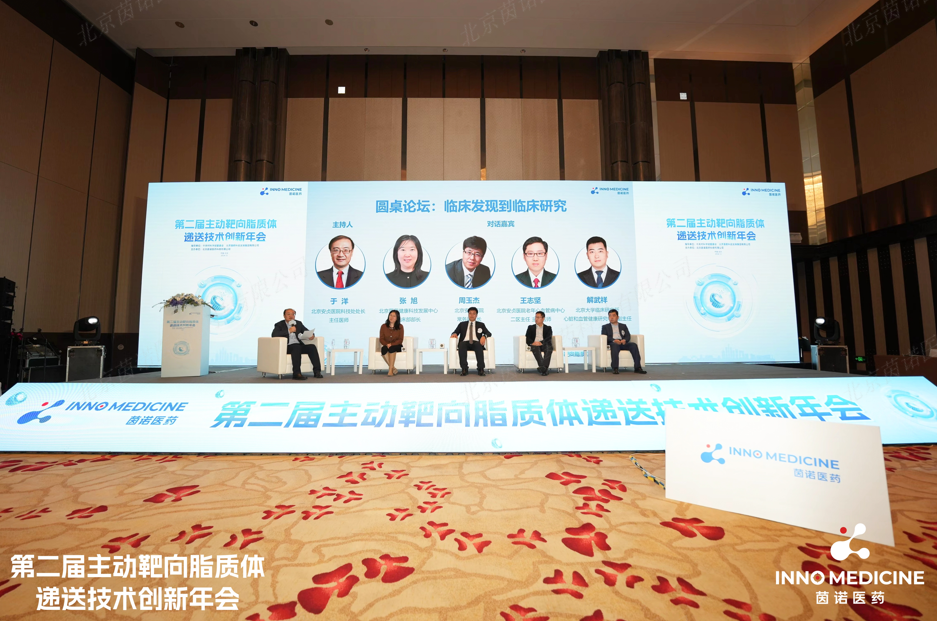
Panel Two: From Clinical Discovery to Clinical Study was moderated by Yu Yang, Director of the Science and Technology Office at Beijing Anzhen Hospital. The panel featured Zhang Xu, Clinical Director at the Beijing Medical and Health Science Development Center; Zhou Yujie, Executive Vice President of Beijing Anzhen Hospital; Wang Zhijian, Director of the Geriatric Cardiovascular Center of Beijing Anzhen Hospital; and Xie Wuxiang, Deputy Director of the Heart and Vascular Health Research Center of Peking University Clinical Research Institute (HVHRC-PUCRI). Director Zhang outlined key initiatives by Beijing Municipal Science and Technology Commission to accelerate clinical research translation. These initiatives include targeted policy support, dedicated funding, and the integration and development of specialized platforms. Vice President Zhou shared his insights on clinical translation, emphasizing the need for clinicians to possess diverse skill sets. Highlighting Dr. Ma Qian’s discovery and successful clinical translation of YN001, he acknowledged her dedication and achievements in advancing clinical research. He's confient that, more physicians will achieve translation breakthroughs with supportive polices in the future. Director Wang explained the clinical needs for product translation, focusing on bridging gaps in existing treatment solutions. Using coronary artery calcification management as an example, he stressed the importance of innovation in medical devices and drug development. He further highlighted the pivotal role of interdisciplinary collaboration and the courage to make bold, decisive choices to advance clinical progress. Professor Xie made an in-depth analysis of the correlation between plaque regression and clinical cardiovascular events. Referencing a study published in JAMA Cardiology, he explained that meta-regression analysis revealed a linear relationship between the degree of PAV reduction and the decrease in MACEs incidence. This evidence robustly supports utilizing PAV changes as a surrogate endpoint for MACEs in the clinical development of YN001.
PART 4: Conclusion
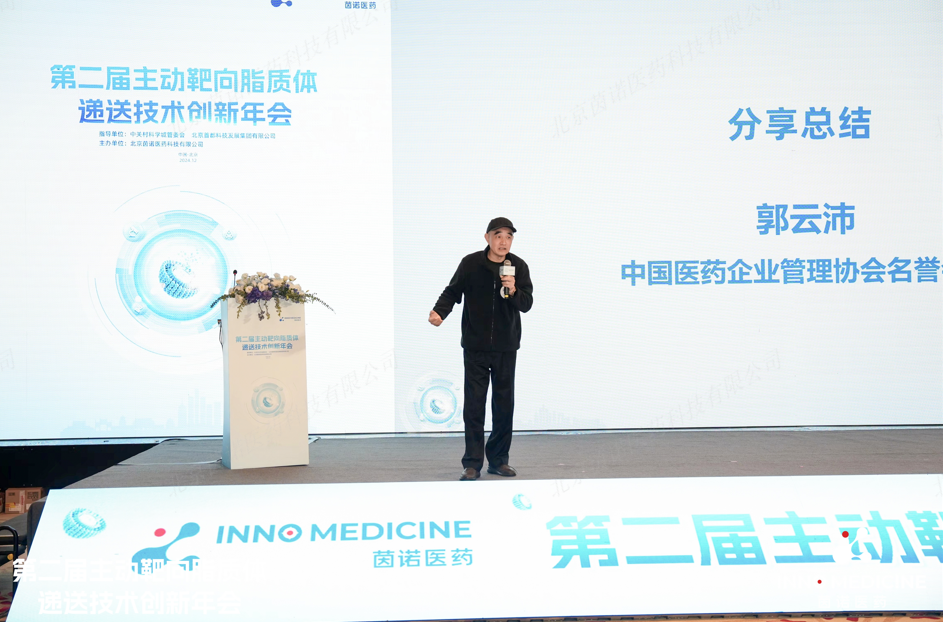
Guo Yunpei, Honorary President of the China Pharmaceutical Enterprises Association, delivered a concluding summary. He highlighted the long-term potential of YN001, developed by Dr. Ma Qian, as an active targeting liposomal delivery platform with broad applicability across various drugs. Addressing the challenges faced by innovative pharmaceutical companies, such as competition from generics and pricing pressures from medical insurance negotiations, President Guo emphasized the need for supportive national policies. He urged stakeholders to support new drug development projects, particularly YN001, which address critical cardiovascular health issues and could greatly benefit an aging population. He also expressed hope for the early availability of innovative drugs for Chinese patients.
This conference provided a platform for exchange and collaboration among experts, scholars, and medical professionals in innovative drug delivery systems and clinical translation, promoting the integration of technological innovation with industrial development. It is expected to bring more innovative treatment options to patients and drive progress in the pharmaceutical and healthcare industries.
About Inno Medicine
Founded in 2016, Beijing Inno Medicine Co., Ltd.(Inno Medicine) is a national high-tech enterprise. Inno Medicine is dedicated to the research, development, and manufacture of groundbreaking pharmaceuticals. Led by Dr. Qian Ma, the company has pioneered an active targeted nano-drug delivery technology platform with proprietary intellectual property rights. Powered by this technological breakthrough, Inno Medicine focuses on addressing urgent unmet medical needs in conditions like atherosclerosis and glioma. YN001 has received IND approval from both US FDA and China NMPA, becoming the world's first targeted cardiovascular drug candidate to enter clinical trials.
Beijing Inno Medicine Co., Ltd.
Address: Building 9, Area C, Xishan Creative Park, Haidian District, Beijing
Telephone number: +86 8259 9080
Copyright © Copyright 2020 Beijing Inno Medicine Co., Ltd. Beijing ICP Preparation No. 2020036980 京ICP备2020036980号